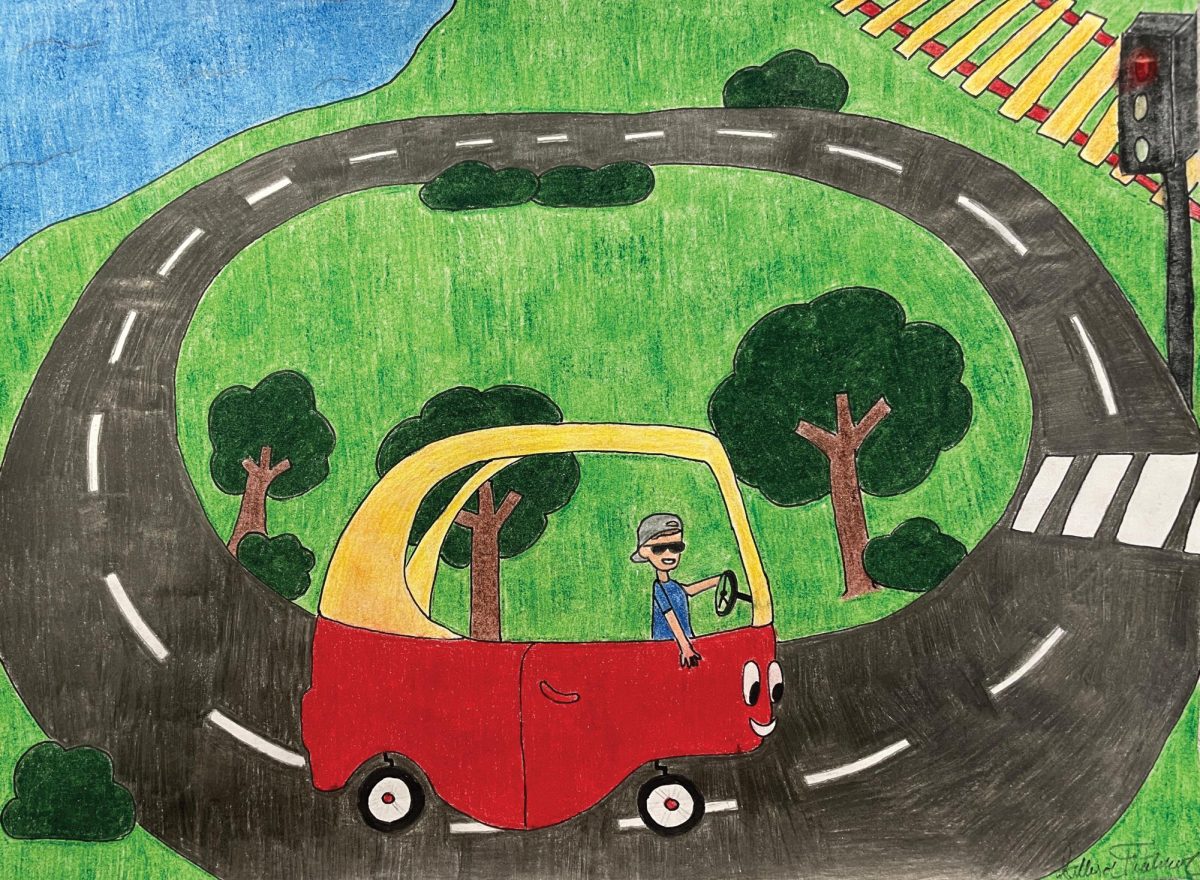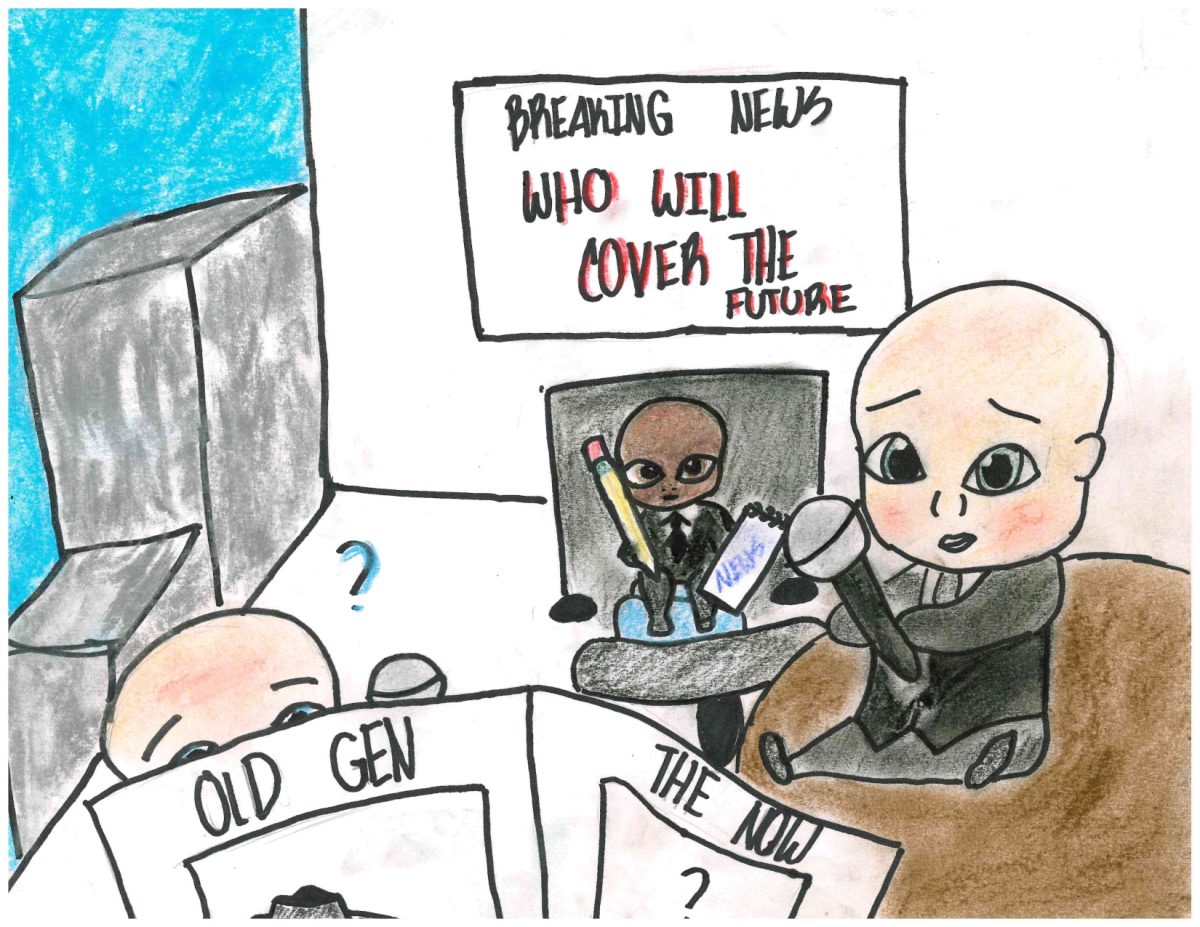The ability to obtain a drivers license and drive is something that many teens look forward to for years before they achieve it.
The ability to drive opens up so many opportunities and freedoms for teens in high school; freedoms that would be taken away if the driving age was raised to 18.
Teens at 16 and 17 are starting to branch out in their lives and find what they enjoy.
Just as high school should be, this is a time to explore personal interests and find one’s self.
This is greatly aided by being able to drive.
Whether it means driving to a sports tryout that a parent isn’t able to, or driving yourself to a job that is a little out of the way from your usual carpool with family and friends, the ability to get behind the wheel at 16 allows teens to expand their lives.
The ability to drive also is a huge factor in the social life of teens in this age group.
Once someone gets their driver’s license they can drive to hang out with their friends whenever they want.
They can go to dinner with a significant other whenever they want.
They can drive to club and sports meetings after school or in other locations.
All of these things factor into the social life of a teen, and are greatly aided by the ability to drive.
The main argument for raising the driving age is safety.
Safety is obviously very important for teen drivers, and it is a fact that 16-year-olds account for the most road incidents.
However, raising the driving age would just make the new 18-year-old drivers the most dangerous group.
The problem with 16-year-old drivers isn’t that they are immature, or that they are any more distracted than those who are 18. They are simply the newest and least experienced drivers on the road.
If the driving age was raised to 18, the 18-year-olds would be the newest and least experienced, and would account for the most incidents.
It is also important to consider the schedules of those that would be forced to drive these teens around: the parents.
Raising the driving age would force parents to drive their children for an extra two years, limiting the possibilities of the teens.
If we take into account the current limits on the drivers licenses of those under 18 and apply them to what the new age would be, it would create some interesting problems.
This would mean that there could be full adults that are unable to drive after midnight or adults that are unable to drive with more than one other person in the car.
On the flip side, if these limits are dropped, it means that there are new drivers that are able to drive late when they haven’t been able to before, and drive as many people they want, creating the same dangers that would be present if current limits on new drivers were removed.
The dangers of 16 and 17-year-old drivers are not directly because of their age.
The dangers are due to their inexperience driving, and this is not something that raising the driving age can fix.
Even if the age is raised to 18 there will still be new drivers.
There will always be new drivers, and these new drivers will always be the least safe on the roads.
New drivers are the source of most traffic incidents, whether they be crashes or tickets, and will continue to be even with a raised driving age.
In addition, if we want to ignore the social aspects and non factual aspects, raising the driving age would also damage insurance companies in ways that most people would not expect.
Insurance companies charge high premiums for insurance with teen drivers, and the loss of this group would put insurance companies in an economic deficit.
To cope with this economic loss, insurance companies would be forced to raise insurance rates for drivers of older ages.
This means that, by raising the driving age to 18, older drivers would have to pay inflated insurance fees to make up for the lack of a teen demographic.
Con: Raising driving age to 18 prevents freedom
By raising the driving age to 18, teens would lose valuable freedoms and create problems for their parents. At a time when teens are delving into new interests, taking away their transportation is a huge problem.
1
14
More to Discover
About the Contributor

Jacob Godshall, Editor-In-Chief








Ruth • May 2, 2024 at 5:27 pm
Thanks that gave a lot of insight